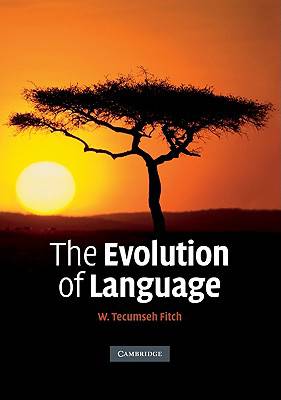
- Afhalen na 1 uur in een winkel met voorraad
- Gratis thuislevering in België vanaf € 30
- Ruim aanbod met 7 miljoen producten
- Afhalen na 1 uur in een winkel met voorraad
- Gratis thuislevering in België vanaf € 30
- Ruim aanbod met 7 miljoen producten
Zoeken
Omschrijving
Language, more than anything else, is what makes us human. It appears that no communication system of equivalent power exists elsewhere in the animal kingdom. Any normal human child will learn a language based on rather sparse data in the surrounding world, while even the brightest chimpanzee, exposed to the same environment, will not. Why not? How, and why, did language evolve in our species and not in others? Since Darwin's theory of evolution, questions about the origin of language have generated a rapidly-growing scientific literature, stretched across a number of disciplines, much of it directed at specialist audiences. The diversity of perspectives - from linguistics, anthropology, speech science, genetics, neuroscience and evolutionary biology - can be bewildering. Tecumseh Fitch cuts through this vast literature, bringing together its most important insights to explore one of the biggest unsolved puzzles of human history.
Specificaties
Betrokkenen
- Auteur(s):
- Uitgeverij:
Inhoud
- Aantal bladzijden:
- 624
- Taal:
- Engels
- Reeks:
Eigenschappen
- Productcode (EAN):
- 9780521859936
- Verschijningsdatum:
- 17/05/2010
- Uitvoering:
- Hardcover
- Formaat:
- Ongenaaid / garenloos gebonden
- Afmetingen:
- 175 mm x 249 mm
- Gewicht:
- 1360 g

Alleen bij Standaard Boekhandel
+ 389 punten op je klantenkaart van Standaard Boekhandel
Beoordelingen
We publiceren alleen reviews die voldoen aan de voorwaarden voor reviews. Bekijk onze voorwaarden voor reviews.











